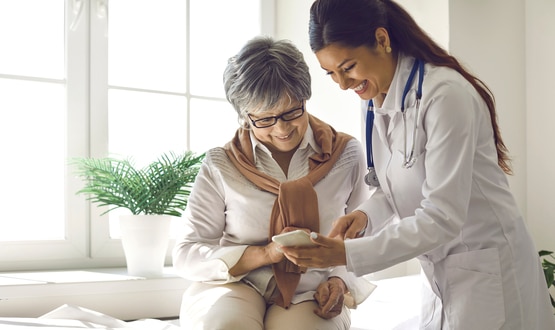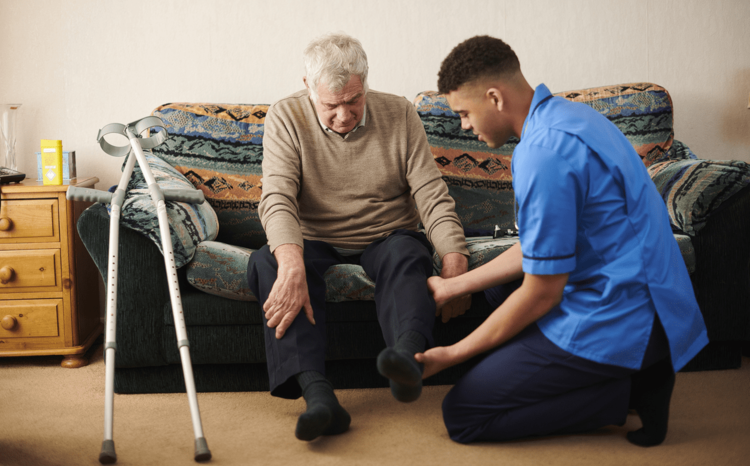Camden Council pilot uses mobile care tech to get patients home quicker

A pilot project from Camden Council and Oysta is using a mobile care device to allow medically-fit patients to be discharged from hospital quickly while still receiving round-the-clock monitoring.
The trial saw Camden Council issue 200 patients at three hospitals in North London with an Oysta Pearl+. This mobile care device is linked to the cloud-based platform IntelliCare and ensures patients received continuous monitoring and could access emergency alarms linked to the council’s Careline.
It supports patients who are medically fit to be discharged from hospital by ensuring they can still receive ongoing social care support from their own homes. The device is equipped with a falls sensor, status alerts and an SOS button to offer this support.
Councillor Anna Wright, cabinet member for health, wellbeing and adult social care, said: “These Help at Home devices have allowed people to return to their own homes faster, with the confidence that they have technology-based support at the touch of a button.
“Using these devices, linked to our Careline team, not only provides peace of mind to the individuals and their families but allows the hospital social work teams to develop a plan to support people with what matters to them.”
Over the course of the pilot an estimated £252,000 was saved by freeing up bed capacity. It also saw patients return home from hospital an average of three days faster.
It meant that patients were able to be discharged ahead of having care assessments, which could then be scheduled for once they returned home, helping to ease the pressure on social care teams and prevent bed blocking in hospitals.
Mario Zuccaro, founder of Oysta said: “What we’ve demonstrated in Camden is that not only can our device free up beds for other patients with urgent need for treatment, but we can reduce the unnecessary risk that a longer than necessary stay in hospital can bring.
“Some people around the country are waiting weeks for their care assessments and by using an Oysta device they have something to keep them safe and monitored which also takes the strain off under pressure social care teams who can schedule in visits in the person’s home when they have returned from hospital.”
Following the Camden trial, the care device will now be used permanently for adult social care users in the area who are returning from hospital.
Remote monitoring examples can already be seen in specialised areas of the NHS across the country. In July Norfolk Community Health and Care NHS Trust expanded its remote monitoring service for patients diagnosed with health failure to more rural parts of the county.
While in August NHS England unveiled its Managing Heart Failure @ Home initiative, to support heart failure patients in their own homes.




